King Crimson – Red (with sheet music)
provider: dailymotion
url: https://dai.ly/k24qDJWbw8HD0xxIvsR
src: https://geo.dailymotion.com/player.html?video=x88mq09&
src mod: https://geo.dailymotion.com/player.html?video=x88mq09
src gen: https://geo.dailymotion.com/player.html?video=k24qDJWbw8HD0xxIvsR
Red is the seventh studio album by English progressive rock band King Crimson. It was released on 6 October 1974 through Island Records in the United Kingdom and Atlantic Records in North America and Japan. The album was recorded at Olympic Studios in London in July and August 1974, and produced by the band themselves.
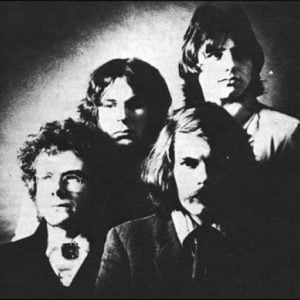
Personnel
King Crimson – production, arrangements
- Robert Fripp – electric guitar (1–5), acoustic guitar (2), Mellotron (2,4-5), Hohner pianet (5)
- John Wetton – bass (1–5), vocals (2–3, 5)
- Bill Bruford – drums (1–5), percussion
The track “Providence” was a free improvisation recorded at their 30 June 1974 concert at the Palace Theater in the city of the same name. Parts of some of the pieces were conceived during previous improvisations performed by the band live. “Starless” was originally considered for their previous album, Starless and Bible Black (1974), but was considered incomplete at the time. The lengthy version included on this album was refined and performed during concerts throughout 1974.
Red is a progressive rock album with a noticeably heavier sound than their previous albums; it was later called one of the 50 “heaviest albums of all time” by Q. This was achieved with the performances of just three band members: guitarist Robert Fripp, bassist and vocalist John Wetton and drummer Bill Bruford. The dense sound of the album was achieved by significant layering, multiple guitar overdubs, and key guest appearances by musicians including founding King Crimson member Ian McDonald, classical oboist Robin Miller and English jazz trumpeter Marc Charig.
Roughly two weeks prior to the release of Red, King Crimson disbanded. The album turned out to be their lowest-charting album at that time, spending only one week in the UK Album Chart at No. 45 and the US Billboard 200 at No. 66. However, it was well received among fans and critics. It has received further praise retrospectively, being recognized as one of the band’s best works, and has been re-issued many times.
Near the conclusion of King Crimson’s 1974 US and Canada tour, the decision was made to ask David Cross to leave the band. EG, the band’s management, urged Fripp not to tell Cross until after the final date of the tour, but he would not be able to do this anyway; Fripp would not return from the United States until after Cross would return to Europe. Fripp reached an agreement with EG management that they would tell Cross, “on proviso that [Cross] is told that I objected to not telling him personally.”
Despite reaching this agreement, Cross would not be told by EG until the day before the recording of Red began. In his stead, the band brought back several contributors to past albums: Robin Miller on oboe, Marc Charig on cornet, former King Crimson members Ian McDonald and Mel Collins on saxophones, as well as an uncredited cellist and acoustic bassist.
Red sees King Crimson follow in the direction established by their previous two albums, Larks’ Tongues in Aspic and Starless and Bible Black, but in contrast to those albums, Red features more layered production with multiple overdubs, as well as the return of the earlier instrumentation of the guest players. Red’s heavier tone was largely due to the influence of the rhythm section, Wetton and Bruford, whom Fripp has referred to as “a flying brick wall”.
During the recording of the album, Fripp took a “backseat” when making large decisions. He had decided to take “a year’s sabbatical … at Bennett’s Institute,” and offered the idea of McDonald rejoining the band in his absence to EG. When this idea was met with disinterest, Fripp abruptly disbanded King Crimson on 24 September 1974, and Red was released two weeks later.
Best Sheet Music download from our Library.
Writing and recording
Much of the material on Red has origins in improvisation. Motifs that would eventually be used for “Fallen Angel” were first played by Robert Fripp in 1972, as part of improvs performed with the quintet lineup that would record Larks’ Tongues In Aspic. These improvisations are documented as “Fallen Angel” and “Fallen Angel Hullabaloo” in the Larks’ Tongues in Aspic: The Complete Recordings box set, as well as standalone releases of their respective concerts.
The distinctive introduction to “One More Red Nightmare” was also deployed by John Wetton and Robert Fripp in various improvs throughout 1974, which can be heard in the Starless (box set) and The Road to Red box sets. One notable performance is titled “The Golden Walnut”. Lastly, “Providence” itself was an improv, taken from the group’s show on 30th June in Providence, Rhode Island. It was included in its uncut form as part of various live sets, such as The Great Deceiver, as well as the 40th Anniversary Edition of Red itself.
“Red” was composed solely by Robert Fripp. In an analysis of the piece by Andrew Keeling, he describes “Red” as “an instrumental piece scored for electric guitar (multi-tracked in three layers), bass guitar and drums,” as well as “one of the more muscular pieces of Robert Fripp’s, in particular the deployment of open strings and heavily attacked and syncopated bass and drums.” In an online diary from 2012, Robert Fripp speaks about the development of “Red”: “A motif; moved from [the missing piece] “Blue” to “Red”: the opening and closing theme of “Red” itself.
The driving, relentless figure that follows it, and the middle figure played by the basses, weren’t enough for a complete piece.” Speaking about it in the book accompanying the Larks’ Tongues in Aspic: The Complete Recordings box set, he says, “After we had just recorded the track “Red” in [Olympic Studios] … we played it back and Bill said, ‘I don’t get it, but if you tell me it’s good, I trust you.’ … I said, ‘We don’t have to use it.’ John was in no doubt: ‘We’ll use it.’”
An unused variation of the song’s middle section would later emerge in 1983, during the writing rehearsals for Three of a Perfect Pair. Though it went unused, it finally saw light in 1995, more than two decades later, as the middle section of the instrumental “VROOOM VROOOM” on THRAK.
“Starless” was originally written by Wetton, with the intent of it being the title track for Starless and Bible Black. At the time, the piece consisted only of the vocal section of the song, and Wetton claims that it got a “cold reception” from both Robert Fripp and Bill Bruford. Later, an introductory theme was written by Robert Fripp and performed on violin by David Cross, and two additional sections were added after the vocal, one being contributed by Bruford. The final section reprises various themes from earlier in the song, and it also re-uses a bass part which was originally written for the song “Fracture”.
This early arrangement of “Fracture” can be heard on discs 1 and 25 of the Starless box set, as well as the standalone releases of their respective concerts. The lyrics went through several iterations, with one early verse later included by Wetton in “Caesar’s Palace Blues,” a song he would perform with U.K. Since the title “Starless and Bible Black” was already used for an improvisation on the group’s previous album, the song’s title was shortened to “Starless”. On Red, “Starless” is credited to the quartet, as well as lyricist Richard Palmer-James.
The lyrics to the three songs on the album were not originally included as part of the packaging for the album, unlike all previous Crimson studio albums, which always had lyrics printed either on the inside of the gatefold covers, or on the custom innersleeves. This led to some occasional confusion amongst listeners about precisely what was being sung, particularly on the song “One More Red Nightmare.” The first printing of the lyrics would occur 26 years after the album’s initial release, on the 2000 ’30th Anniversary Edition’ release.
Release and reception
Released in October 1974, Red spent only one week on the British charts, at No. 45, whereas all the band’s previous studio albums had reached the Top 30. In the United States, it reached No. 66 on the Billboard 200. However, it remained a popular album with fans and critics.
Retrospective reviews were resoundingly positive. In theirs, AllMusic declared Red to be weaker than its two predecessors, but nonetheless a superlative work: “few intact groups could have gotten an album as good as Red together.
The fact that it was put together by a band in its death throes makes it all the more impressive an achievement.” Robert Christgau also applauded the album, having been generally critical of the group’s past work, calling it “Grand, powerful, grating, and surprisingly lyrical” and commenting that “this does for classical-rock fusion what John McLaughlin‘s Devotion did for jazz-rock fusion.” Classic Rock reviewer considered Red “a walk down a lightless corridor and an unhappy and ferocious counterbalance to the frolics of King Crimson’s beginnings”, and described it as “dark, brooding and laden with heavily distorted sections and a decidedly melancholic vibe”.
Download the best scores from our Sheet Music Library.
Like most of King Crimson’s catalogue, Red has been re-released numerous times since 1974. First issued on Compact Disc in 1986, it has also been released as part of the “Definitive Edition” series in 1989, and the “30th Anniversary Edition” series in 1999. In 2009, Red was chosen, alongside In the Court of the Crimson King and Lizard, to launch the “40th Anniversary Edition” series.
As part of this series, each album is presented in a CD/DVD-A package, with new stereo and 5.1 surround mixes crafted by Steven Wilson. Unlike the other editions in the series, however, Red launched with no new stereo mix. In 2013, Wilson and Fripp created a new stereo mix for The Road To Red boxed set, and this mix was also issued separately as part of a 2CD package.
Legacy
In 2001, Q magazine named Red as one of the “50 Heaviest Albums of All Time” and Pitchfork ranked Red number 72 in its “Top 100 Albums of the 1970s” list, stating that “For a band that was very obviously about to splinter, King Crimson’s music sounds remarkably of a single mind. On Red, they achieved a remarkable balance between bone-crushing brutality and cerebral complexity.” Rolling Stone ranked the album at number 15 on their list of the 50 best progressive rock albums of all time. Kurt Cobain had reportedly cited the album as a major influence.
“Red” was covered by Canadian rock band Glueleg in their 1994 debut Heroic Doses, with this version featuring saxophone and trumpet. “Red” was also ranked as the twentieth best progressive rock song of all time by PopMatters, as well as number 87 in Rolling Stone‘s list of “The 100 Greatest Guitar Songs”. Additionally, “Red” has been considered an influence on avant-garde metal.
Musicologists Eric Tamm and Edward Macan both consider Red, particularly the track “Starless“, to be the highlight of King Crimson’s recorded output. “Starless” is played over the opening titles of the 2018 horror film Mandy.
Browse in the Library:
| Artist or Composer / Score name | Cover | List of Contents |
|---|---|---|
| Alan Silvestri Contact Main Thitle Piano Solo |
 |
|
| Alan Silvestri The Avengers |
 |
Alan Silvestri The Avengers |
| Alan Walker – Faded |
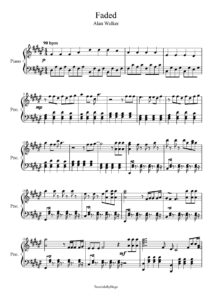 |
|
| Alan-Menken – Enchanted (Disney) |
 |
Enchanted Piano Vocal Guitar |
| Alanis Morisette – Hand In My Pocket | ||
| Alanis Morisette – Hands Clean | ||
| Alanis Morisette – Ironic | ||
| Alanis Morisette – Thank You | ||
| Alanis Morisette – That I Would Be Good | ||
| Alanis Morisette – Uninvited | ||
| Alanis Morisette – You Oughta Know | ||
| Alanis Morrissete You Oughta Know Sheet Music |
 |
|
| Alban Berg – Schliesse Mir Die Augen Beide (Musescore File).mscz | ||
| Alban Berg – Schliesse mir die Augen beide (Piano and voice Noten) |
 |
|
| Albeniz Isaac – Tango In D – Para Piano | Albeniz, Isaac – Tango In D – Para Piano | |
| Albeniz For Acoustic Guitar with Audio MP3 by Laurindo Almeida |
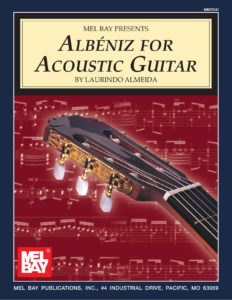 |
Albeniz for acoustic guitar with audio MP3 |
| Albeniz Suite Española V (Musescore File).mscz | ||
| Albéniz, Isaac – Capricho Catalán (Op. 165 no. 5) (Guitarra – Guitar) |
 |
|
| Albéniz, Isaac – Capricho Catalán (Op. 165 no. 5) (Piano) |
 |
|
| Albert Ammons 5 Boogie Woogie Piano Solos Sheet Music |
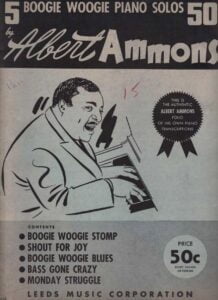 |
Albert Ammons 5 Boogie Woogie Piano Solos Sheet Music |
| Albert Ammons – Boogie Woogie Stomp |
 |
|
| Albert Ammons – Monday Struggle | Albert Ammons – Monday Struggle | |
| Albert Ammons – Shout For Joy | Albert Ammons – Shout For Joy | |
| Albert Ammons – Swanee River Boogie Woogie |
 |
|
| Albert Harris Sonatina Guitar Solo |
 |
|
| Albert Harris Variations And Fugue On A Theme Of Haendel (Guitar) |
 |
|
| Albert King The Very Best Of Albert King (Guitar TABs) |
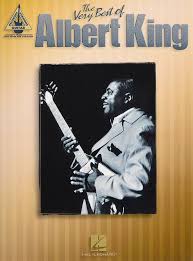 |
Albert King The Very Best Of Albert King |
| Albert Lee – The Best Of Albert Lee Guitar Tabs |
 |
Albert Lee – The Best Of Albert Lee Guitar Tabs |
| Albinoni – Adagio (Piano Solo Version) |
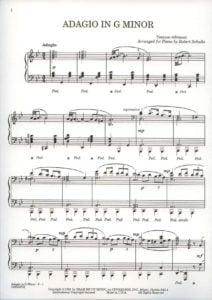 |
|
| ALBINONI-Adagio |
 |
|
| Album of Russian piano music | Russian music 1 | Russian music 2 |
| Album Of Scandinavian Piano Music By Louis Oesterle Vol. 1 (25 Pieces) 1902 |
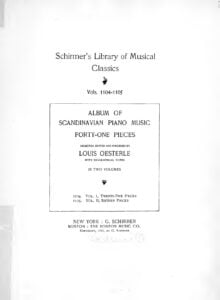 |
Album Of Scandinavian Piano Music By Louis Oesterle Vol. 1 (25 Pieces) 1902 |
| Alegre Magín – Americana (Guitarra) Habanera (Musescore File).mscz | ||
| Alegria Cirque Du Soleil Piano Vocal Guitar Chords Sheet Music |
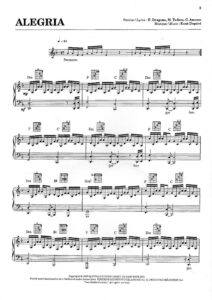 |
|
| Alejandro Sanz – Amiga Mia | ||
| Alejandro Sanz – La Margarita Dijo No | ||
| Alejandro Sanz – Y Si Fuera Ella | ||
| Aleksander Vertinskiy songbook |
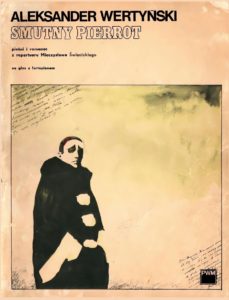 |
Aleksander Vertinskiy songbook |
| Alex North – Spartacus Love Theme (piano sheet music) |
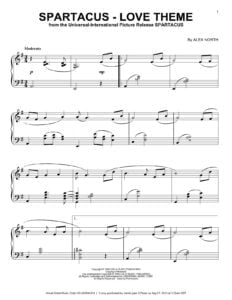 |
Alex North Spartacus Love Theme |
| Alex North Spartacus Love Theme (Lead sheet) | Alex Norrth SpArtacus | |
| Alexander Scriabin 24 Preludes Op. 11 1 To 12 Musescore File.mscz | ||
| Alexandra Streliski Burnout Fugue |
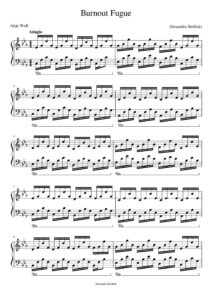 |
|
| Alexandra Streliski Le Noveau Dèpart |
 |
|
| Alexandra Streliski Par La Fenêtre De Théo |
 |
|
| Alexandra Streliski Plus Tôt |
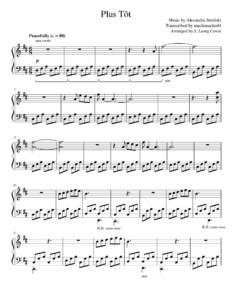 |
|
| Alexandra Strevisky Pianoscope |
 |
Alexandra Strevisky Pianoscope |
| Alexandre Desplat Elisas Theme Piano from The shape of water |
 |
|
| Alexandre Desplat The Shape Of Water Main Theme |
 |
|
| Alexandre Desplat – Lust Caution |
 |
Alexandre Desplat – Lust Caution |
| Alexandre Desplat – The Imitation Game |
 |
|
| Alexandre Desplat – The Meadow New Moon Piano solo Sheet Music |
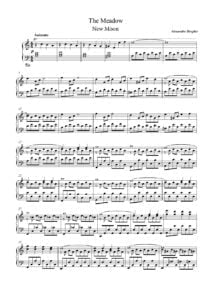 |
|
| Alexandre Desplat Almost A Kiss (From The Film New Moon) |
 |
|
| Alexandre Desplat and Lang Lang Kitty,s Theme from The Painted Veil | Alexandre Desplat and Lang Lang Kitty,s Theme from The Painted Veil | |
| Alexandre Desplat Brunos Theme From Suite Fran?aise |
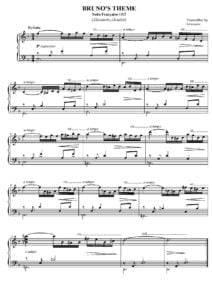 |
|
| Alexandre Desplat Full Moon (From The Film New Moon) |
 |
|
| Alexandre Desplat My Week With Marilyn – Marilyn’s Theme |
 |
|
| Alexandre Desplat Ost Godzilla Main Theme |
 |
|
| Alexandre Desplat The Danish Girl Theme Piano Solo |
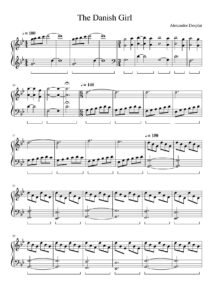 |
|
| Alexandre Desplat The Imitation Game |
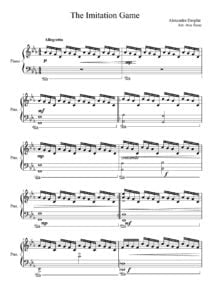 |
|
| Alexandre Desplat The King Speech |
 |
Alexandre Desplat The King Speech |
| Alexandre Desplat The Power Plant from Godzilla |
 |
|
| Alexandre Desplat The Wonder Of Life |
 |
|
| Alexandrov Piano Works Vol I |
 |
|
| Alexandrov Works for Piano Vol II |
 |
|
| Alexandrov Works for Piano Vol III Sonatas |
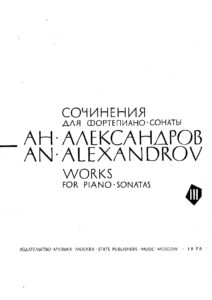 |
|
| Alexandrov, Anatoly 6 Preludes For Piano Op. 1 (1961) |
 |
|
| Alexis Ffrench – Bluebird |
 |
|
| Alfred Basic Adult Christmas Book Level 1 |
 |
|
| Alfred Basic Repertoire Level 4 |
 |
|
| Alfred Brendel A Pianists A-Z A Piano Lovers Reader Book |
 Andrew Hill 21 Piano Compositions Andrew Hill 21 Piano Compositions |
|
| Alfred’s Basic Adult Piano Course Level 1 |
 |
Lessons Alfred’s Basic Adult Piano Course Level 1 |
| Alfred’s Basic Adult Piano Course Level 2 |
 |
Lessons Alfred’s Basic Adult Piano Course Level 2 |
| Alfred’s Basic Adult Piano Course Level 3 |
 |
Lessons Alfred’s Basic Adult Piano Course Level 3 |
| Alfred’s Basic Piano Level 2B |
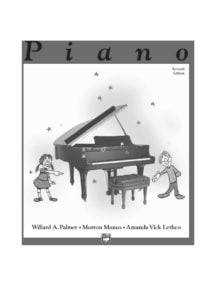 |
|
| Alfred’s Basic Piano Level 4 Jazz Rock Course |
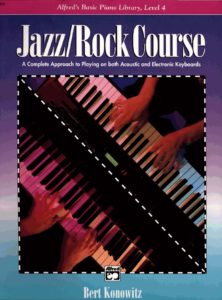 |
|
| Alfred’s Basic Piano Library Essentials Of Jazz Theory Book 2 |
 |
Alfred’s Basic Piano Library Essentials Of Jazz Theory Book 2 |
| Alfred’s Basic Piano Library – Solo Book Complete Levels 2 & 3 for the later beginner |
 |
Alfred’s Basic Piano Library – Solo Book Complete Levels 2 & 3 for the later beginner |
| Alfred’s Basic Piano Library – Top Hits! Solo Book – Level 4 |
 |
|
| Alfred’s Basic Piano Library Essentials Of Jazz Theory Book 1 |
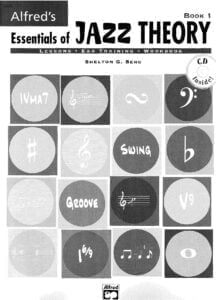 |
Alfred’s Basic Piano Library Essentials Of Jazz Theory Book 1 |
| Alfred’s Basic Piano Library Essentials Of Jazz Theory Book 3 |
 |
Alfred’s Basic Piano Library Essentials Of Jazz Theory Book 3 |
| Alfred’s Basic Piano Library Lesson Book Level 3 |
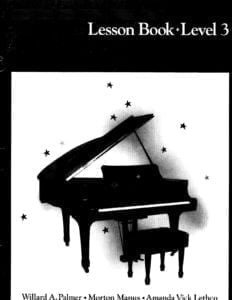 |
|
| Alfred’s Teach Yourself To Play Guitar Everything You Need To Know To Start Playing The Guitar! (with Tablature) |
 |
|
| Alfred’s Essentials Of Music Theory, Complete (Andrew Surmani, Karen Farnum Surmani Etc.) Sheet Music |
 |
|
| Ali and Nino (Dario Marianelli) | ||
| Alice Coltrane Monument Eternal (book) The Music of – by Franya J. Berkman |
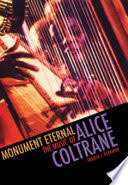 |
|
| Alice In Chains Dirt Full album Guitar TAB with lyrics |
 |
Alice In Chains Dirt Full album Guitar TAB with lyrics |
| Alicia Keys – A Woman’s Worth | Alicia Keys – A Woman’s Worth | |
| Alicia Keys – A Womans Worth | ||
| Alicia Keys – And I | ||
| Alicia Keys – As I Am (Songbook) |
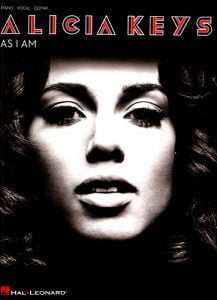 |
ALICIA KEYS SONGBOOK |
| Alicia Keys – Butterflyz | ||
| Alicia Keys – Diary | ||
| Alicia Keys – Fallin | ||
| Alicia Keys – Fallin’ (Sheet Music – Piano) | Alicia Keys – Fallin’ (Sheet Music – Piano) | |
| Alicia Keys – Goodbye | ||
| Alicia Keys – How Come You Dont Call Me | ||
| Alicia Keys – If I Aint Got You |
 |
|
| Alicia Keys – Impossible | ||
| Alicia Keys – Never Felt This Way | ||
| Alicia Keys Diary Song Book |
 |
ALICIA KEYS DIARY SONGBOOK |
| Alicia Keys The Element Of Freedom Songbook |
 |
ALICIA KEYS |
| Alicia Keys Unplugged |
 |
ALICIA KEYS UNPLUGGED |
| Alkan, Charles Valentin Concerto For Solo Piano 1st Movement Opus 39 No. 8 In G Minor (Piano Solo Reduction) |
 |
|
| All 4 One – I Can Love You Like That | ||
| All 4 One – I Swear | ||
| All American Folk Complete Sheet Music Editions Volume One (Creative Concepts Publishing Corp.) |
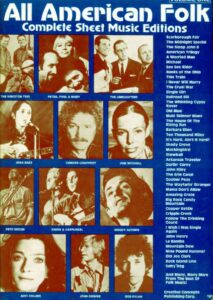 |
All American Folk Complete Sheet Music Editions Volume One (Creative Concepts Publishing Corp.) ( |
| All Blues For Jazz Guitar Comping Styles Chords And Grooves by Jim Ferguson Guitar Tablature |
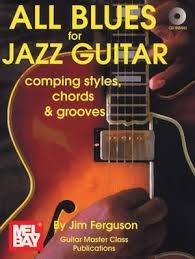 |
All Blues For Jazz Guitar Comping Styles Chords And Grooves by Jim Ferguson Guitar Tablature |
| All Blues Soloing For Jazz Guitar – Jim Gerguson Play Along (Book + audio MP3) with Tablature |
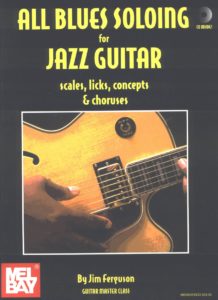 |
All Blues Soloing jazz guitar |
| All By Myself – Celine Dion (Musescore File).mscz | ||
| All I Want For Christmas Is You (Musescore File).mscz | ||
| All Of Me – Jazz Standard Stride Piano arr. Gerald Marks and Seymour Simons | All of me (Gerald Marks and Seymour Simons) Jazz Piano Solo arr. sheet music | |
| All Of Me – Jazz Standard Stride Piano Arr. Gerald Marks And Seymour Simons (Musescore File).mscz | ||
| All Of Me Fingerstyle Guitar TABs By Lucas Brar Jazz Standard (Gerald Marks and Seymour Simons) | All Of Me Fingerstyle Guitar TABs By Lucas Brar Jazz Standard | |
| All Of Me Gerald Marks & Seymour Simons 1931 Jazz Standard (Vintage sheet music) | All Of Me Gerald Marks & Seymour Simons 1931 Jazz Standard (Vintage sheet music) | |
| All Of The Jazz Standard Vol. 1 |
 |
All Of The Jazz Standard Vol. 1 |
| All Of The Jazz Standard Vol. 2 |
 |
All Of The Jazz Standard Vol. 2 |
| All Saints – Never Ever | ||
| All Sondheim Vol I Music and lyrics |
 |
All Sondheim Vol I Music and lyrics |
| All Sondheim Vol II Music and lyrics |
 |
All Sondheim Vol II Music and lyrics |
| All Sondheim Vol III Music and lyrics |
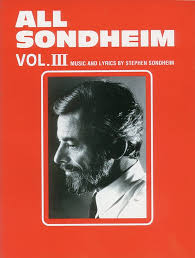 |
All Sondheim Vol III Music and lyrics |
